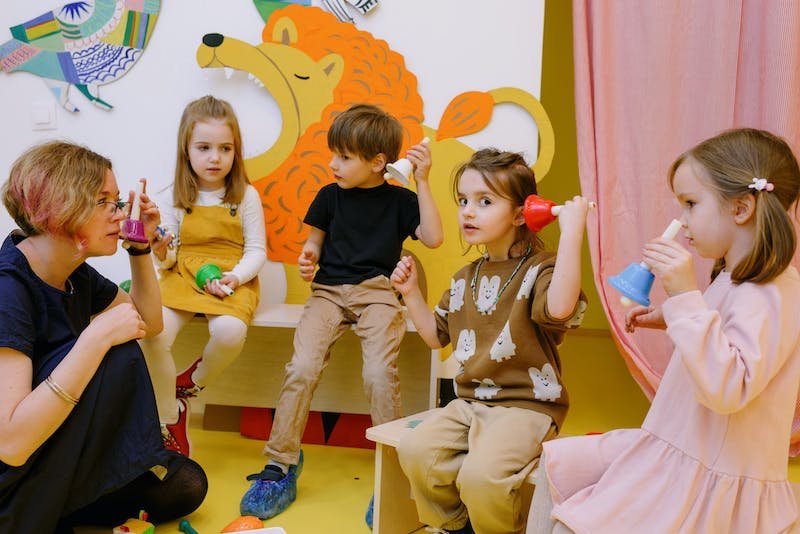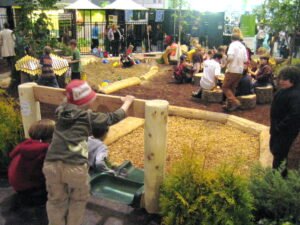Developing Fine Motor Skills in Preschoolers: Fun and Educational Activities
Fine motor skills play a crucial role in a child’s overall development, particularly during their preschool years. These skills involve the coordination of small muscles in the hands and fingers, enabling children to perform essential tasks such as writing, drawing, buttoning clothes, and using utensils. Developing fine motor skills not only promotes independence but also lays the foundation for future academic success. This article will explore the importance of fine motor skills development in preschoolers and provide a range of fun and educational activities to enhance these skills. By engaging in these activities, parents, caregivers, and educators can support children’s fine motor skill development in an enjoyable and interactive way.
1. Introduction to Fine Motor Skills Development
Understanding Fine Motor Skills
Let’s talk about those tiny yet mighty hands! Fine motor skills refer to the ability to use the small muscles in our hands and fingers to perform tasks like writing, buttoning shirts, or tying shoelaces. These skills may seem like no big deal to us adults, but for preschoolers, they are crucial for everyday tasks and future academic success.
2. Importance of Developing Fine Motor Skills in Preschoolers

Benefits of Developing Fine Motor Skills
Role of Fine Motor Skills in School Readiness
Fine motor skills are more than just fancy finger movements; they play a significant role in a preschooler’s overall development. By engaging in activities that strengthen these skills, kids can improve hand-eye coordination, concentration, and dexterity. Plus, it’s not all about tying shoelaces – fine motor skills are closely linked to early literacy and numeracy abilities.
When preschoolers have well-developed fine motor skills, they can hold pencils correctly, manipulate scissors with ease, and complete puzzles effortlessly. These skills lay the foundation for success in school, helping kids excel in writing, drawing, and other academic tasks.
3. Fine Motor Skills Milestones: What to Expect
Typical Fine Motor Skills Milestones in Preschoolers
Identifying Developmental Delays and Seeking Support
Every child develops at their own pace, but it’s helpful to know the general milestones for fine motor skills in preschoolers. By three years old, most kids can stack blocks, scribble with a crayon, and turn pages of a book. By four, they can use safety scissors and copy simple shapes. And by five, they can tie their shoelaces and write their names.
If you notice significant delays or difficulties in your child’s fine motor skills development, it’s important to seek support from their preschool teacher or pediatrician. Early intervention and targeted activities can make a world of difference in helping your little one catch up and thrive.
4. Fun Activities to Strengthen Hand and Finger Muscles

Playdough and Clay Activities
Finger Exercises and Hand Strengthening Games
Puzzles and Manipulative Toys
Who said developing fine motor skills can’t be a blast? There are plenty of fun activities you can do with your preschoolers to help them strengthen their hand and finger muscles.
Playdough and clay activities are a classic favorite. Get those little hands squishing, rolling, and shaping to improve their grip and dexterity. Finger exercises like picking up small objects with tweezers or sorting beads can also do wonders for fine motor skills.
Don’t forget about puzzles and manipulative toys! These toys challenge kids to think, problem-solve, and work those fine motor skills all at once. Plus, they come in all shapes and sizes, so your child can expand their abilities while having a blast.
Remember, the key is to make these activities enjoyable and engaging. So, put on some music, get those fingers moving, and watch your preschooler’s fine motor skills flourish!
5. Sensory Play and Fine Motor Skills Enhancement

Exploring Sensory Bins and Tactile Experiences
Sensory play is not just messy fun, it’s also a great way to develop fine motor skills in preschoolers. Fill a bin with rice, sand, or even cooked pasta, and let your little ones dig in. They can scoop, pour, and sift through the materials, improving their hand-eye coordination and finger dexterity.
Water Play and Pouring Activities
Water play is a classic favorite for kids, and it’s also fantastic for fine motor skills development. Provide cups, funnels, and containers of various sizes for your child to pour and transfer water. Not only will they have a blast, but they’ll also be honing their hand strength and coordination.
Sensory Fine Motor Activities for Sensory Sensitive Children
For children who are sensitive to certain textures, there are still plenty of sensory activities that can help develop their fine motor skills. Try using materials like kinetic sand, playdough, or even shaving cream. These substances provide a less overwhelming sensory experience while allowing for exploration and fine motor skill improvement.
6. Art and Craft Activities for Fine Motor Skills Development

Painting and Drawing Exercises
Unleash your child’s inner artist and boost their fine motor skills at the same time! Set them up with paints, markers, or crayons and encourage them to create masterpieces. Drawing shapes or connecting dots can also help develop hand control and coordination.
Scissor Skills and Paper Crafts
Introduce child-safe scissors and let your little one practice their cutting skills. Start with simple lines and progress to cutting out shapes. Paper crafts like origami or paper chain making are also great for fine motor skills as they involve folding, twisting, and manipulating paper.
Collage Making and Fine Motor Skills Integration
Encourage your child to create collages using different materials like buttons, feathers, or torn paper. Sorting, picking up small items, and gluing them down will strengthen their hand muscles and enhance fine motor skills.
7. Fine Motor Skills Activities with Everyday Objects
Using Utensils and Developing Self-Help Skills
Mealtime can be an excellent opportunity for fine motor skill development. Encourage your child to use utensils like spoons, forks, and child-safe knives to practice self-feeding. It may be a little messy, but it’s a fun way for them to improve their hand-eye coordination and grip.

Buttoning, Zipping, and Dressing Activities
Teaching your child to button shirts, zip up jackets, and dress themselves not only fosters independence but also fine tunes their fine motor skills. These everyday tasks require finger control and hand-eye coordination.
Building with Blocks and Construction Materials
Blocks and construction materials like Lego bricks are perfect for fine motor skill development. Whether it’s stacking towers or creating intricate structures, your child will be manipulating objects and refining their hand movements.
8. Incorporating Fine Motor Skills Development into Daily Routine
Mealtime Activities and Utensil Practice
Make mealtimes a fine motor skills workout by involving your child in tasks like pouring drinks, serving food, and cleaning up. These activities encourage hand control and coordination while teaching them valuable self-help skills.
Toothbrushing and Oral Motor Skills Enhancement
Brushing teeth is not only important for dental hygiene but also an opportunity to enhance fine motor skills. Encourage your child to hold the toothbrush properly, move it in circular motions, and reach all areas of their teeth and gums.
Gardening and Outdoor Fine Motor Activities
Spending time in the garden or outdoor play area can provide ample opportunities for fine motor skill development. Whether it’s digging in the soil, picking flowers, or using gardening tools, these activities engage hand muscles and hand-eye coordination. Plus, it’s a great way to get some fresh air and vitamin D!In conclusion, fostering the development of fine motor skills in preschoolers is a key aspect of their overall growth and readiness for future learning. By incorporating fun and educational activities into their daily routines, parents and educators can provide children with the necessary tools to strengthen their hand and finger muscles, enhance their coordination, and promote independence. From sensory play to art and craft activities, there are countless opportunities to engage children in activities that will support their fine motor skill development. By prioritizing the development of these skills, we can empower preschoolers to thrive and succeed in their academic journey and beyond.
FAQ
- At what age should I start focusing on fine motor skills development with my preschooler? You can begin fostering fine motor skills as early as infancy. However, active engagement in targeted activities typically starts around 2-3 years old when children show increased interest and coordination.
- What are some signs of fine motor skill delays in preschoolers? Signs may include difficulty with holding a pencil, trouble with using scissors, struggles with buttoning or zipping clothing, and challenges in activities that involve hand-eye coordination, such as stacking blocks.
- Can I incorporate fine motor skill development into everyday activities? Absolutely! Everyday activities like drawing, coloring, playing with building blocks, threading beads, and even helping with simple kitchen tasks can significantly contribute to fine motor skill development.
- How can I make sure the activities are both fun and educational for my preschooler? To ensure activities are both fun and educational, choose games or tasks that align with your child’s interests. Incorporate storytelling, use colorful materials, and turn learning into a game. Also, consider varying activities to maintain engagement and adapting them based on your child’s developmental stage.


Ms. Kerri’s Corner provides a exciting virtual space for preschool learning. Through a variety of engaging activities, she exposes young minds to early math, literacy, science and social-emotional skills in a developmentally appropriate way. Centers for blocks, art, books and music allow children to explore hands-on learning at their own pace. Guided lessons subtly introduce number sense, letter sounds and narrative thinking. Careful observation gives insight into each child’s progress across domains. Viewers are also invited to participate, reinforcing that their ideas are valued. By making learning fun yet purposeful, Ms. Kerri lays the groundwork for future academic success while fostering creativity and imagination. Her program offers preschoolers valuable screen-based learning experiences.




